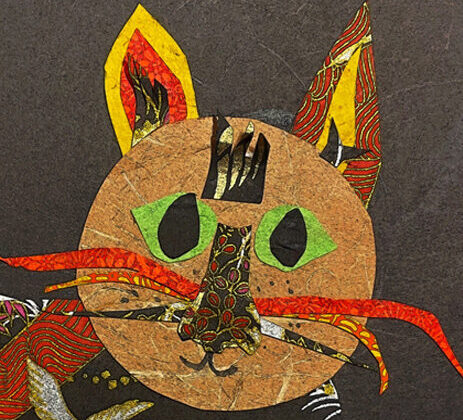Shloka Shankar
tabula rasa
“You can stroke people with words.” — F. Scott Fitzgerald
I don’t know if mine have ever emerged from the page to stroke the reader. Or given someone the feeling of a ten-second-extra-long-hug when they most needed it. Made them shake their head in agreement. Filled a void so deep, a void that could potentially house the ocean.
I’ve experienced the softness of nouns, the slipperiness of adjectives, and the hurriedness of verbs in my hypodermis. They string themselves together, combining and re-combining until I no longer feel like a blank page begging for a few drops of ink.
rewriting
my phrase —
Groundhog Day
About the Author

Shloka Shankar is a writer and visual artist from India. A Best of the Net nominee, she is the founding editor of Sonic Boom and Yavanika Press.

Nicely done, Shloka. Your words have indeed “stroked” me.
This reminds me of what someone said after I read her my published haiku: “Is that it?”
Obviously, my words didn’t stroke her.
Adelaide
Love these gentler additions to the criteria for judging whether a poem is a poem because they’re more embracing than Emily Dickinson’s criteria, but without excluding hers:
“If I read a book and it makes my whole body so cold no fire can ever warm me, I know that is poetry. If I feel physically as if the top of my head were taken off, I know that is poetry. These are the only ways I know it. Is there any other way?”
— Emily Dickinson in conversation with Colonel Thomas Wentworth Higginson in Amherst, Massachusetts, August 1870. See the Letters of Emily Dickinson, Volume I, edited by Mabel Loomis Todd (Boston, MA: Roberts Brothers, p. 315).
Truly, your words hold power!